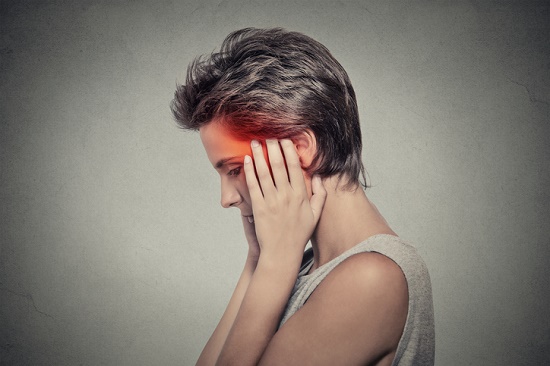
While it’s true that there is at this time no scientifically-established method to cure tinnitus, researchers are hard at work to discover one. In the meantime, a range of tinnitus therapy options exist that can provide significant relief.
Look at it in this way. If you have a headache, you take Tylenol despite the fact that it doesn’t “cure” your headache. Pain relievers simply make the pain diminish into the background to ensure that it doesn’t interfere with your day. In the same way, tinnitus therapy can help minimize the intensity of symptoms so that your tinnitus has marginal affect on your daily life.
Considering that every person responds to tinnitus differently, there’s no one-size-fits-all treatment. You’ll need to work together with your provider to find the approach that works the best for you.
Here are some of those options.
Tinnitus Treatment Solutions
If you experience tinnitus, you’ll want to investigate the following treatment options with your hearing care or healthcare professional.
Treatment of the underlying ailment
Although most instances of tinnitus are not curable—and are derived from hearing loss or other non-reversible injury—certain cases are triggered by an underlying physical condition. You’ll want to rule these out before seeking other treatment modalities.
Possible physical causes of tinnitus include jaw joint issues (temporomandibular joint, or TMJ dysfunction), excessive earwax or other obstructions in the ear canal, head and neck injuries, and reactions to specific medications.
General Wellness
The seriousness of tinnitus symptoms can fluctuate depending on overall health. Taking steps to enrich general fitness is, therefore, one thing tinnitus patients can get started on immediately to ease the intensity of symptoms.
Each person is unique, and what works out for someone else might not be right for you. The purpose is to experiment with different activities to find out what works best.
Activities that have shown promise include instituting a healthy diet, getting adequate physical exercise, meditating, and partaking in activities like bicycling, which can conceal the sounds of tinnitus.
Hearing Aids
Tinnitus is often associated with hearing loss and hearing damage. In reaction to diminished stimulation from outside sound, the brain goes through maladaptive changes that result in the perception of tinnitus.
By increasing the magnitude of environmental sound, hearing aids can help mask the tinnitus, making the sounds of tinnitus less conspicuous. Hearing aids additionally supply elevated sound stimulation to the brain, which is thought to be neurologically beneficial.
Sound Therapies
Sound therapy is simply the delivery of sound in the form of white noise, pink noise, or nature sounds to minimize the perceived burden or intensity of tinnitus.
Sound therapy operates by covering up the tinnitus and also by retraining the brain to recategorize the sounds of tinnitus as insignificant. This combined effect can decrease the short and long-term intensity of tinnitus.
Sound therapy can be supplied through special tabletop devices, but also through portable media devices and even through hearing aids. Medical-grade sound therapy uses custom sounds that match the pitch of the individual’s tinnitus for the best results.
Behavioral Therapy
Bear in mind that tinnitus is the sense of sound in the brain when no exterior sound is present. The ailment is, for that reason, highly subjective, and each person reacts a unique way.
In fact, whether or not the individual perceives tinnitus as debilitating or minor is predominantly as a consequence of emotional reactions and not to the volume or pitch of the tinnitus. That’s why cognitive/behavioral solutions to tinnitus therapy have been demonstrated to be exceptionally effective.
A number of techniques exist, including Mindfulness-Based-Stress-Reduction (MBSR) and Tinnitus-Retraining-Therapy (TRT), which unites cognitive-behavioral-therapy with sound therapy.
Drug Therapies
While there are no current FDA-approved medications for tinnitus, antianxiety and antidepressant medications are frequently used to treat the behavioral side effects to tinnitus. These drugs do not appear to affect tinnitus itself, but may offer much-needed relief if thought necessary by your doctor.
Experimental Therapies
The search for a tinnitus cure is on-going. Many experimental therapies are in development or evaluation and new techniques become available each year. If your tinnitus is severe, and you’ve obtained little benefit from existing therapies, you could be a candidate for one of these advanced treatment options.
Check out the Experimental Therapies page at the American Tinnitus Association website for more details.
Find Relief For Your Tinnitus
Tinnitus is currently being aggressively studied, with brand new discoveries and potential treatment options introduced every year. Even now, there are a variety of encouraging treatments that, while not supplying a cure, can supply significant relief. You owe it to yourself to investigate these options, stay positive and persistent in your tinnitus care, and work together with your provider to adjust your treatment plan for the greatest results.
